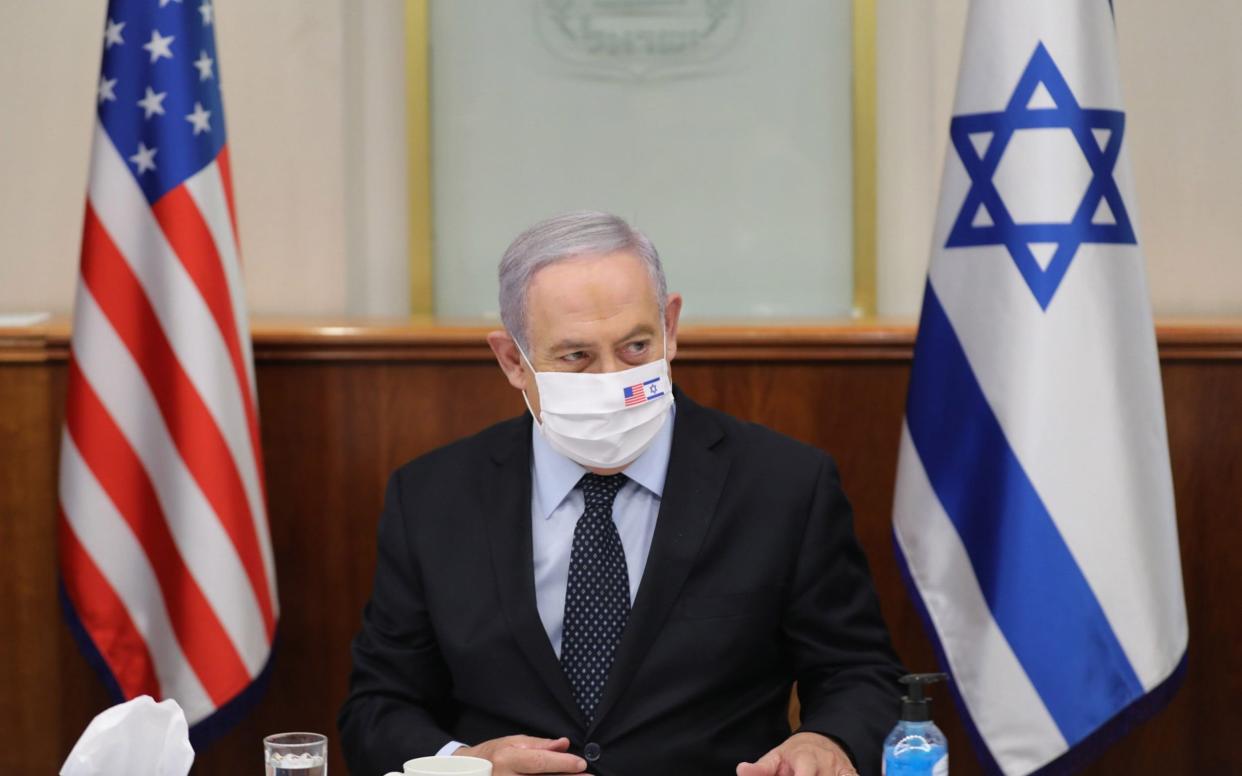Israel's prime minister hints that annexation of West Bank will be delayed

Benjamin Netanyahu, the Israeli prime minister, has signalled that he will delay annexing parts of the West Bank as his government grapples with rising coronavirus infections and reports of hesitation in Washington about the controversial plan.
Mr Netanyahu had previously named July 1 as the date when Israel would begin placing settlements in the West Bank under Israeli sovereignty.
But according to Israeli state broadcaster Kan, the prime minister hinted to his fellow Likud MPs on Monday that annexation will be delayed.
“I have a positive and topical line of communication with the Americans and when I have something to report, I’ll report [it],” Mr Netanyahu told Israeli lawmakers according to Kan.
He is said to have added: “This is a complicated process with lots of diplomatic and security considerations that I can’t get into. We said that [annexation] would be after July 1.”
Annexation is a key element of US President Donald Trump’s peace plan for the Middle East, which would see up to 30 per cent of the West Bank annexed by Israel in return for negotiations on a future Palestinian state.
But the Israeli prime minister is facing pressure from the international community to abandon unilateral annexation, while his own defence minister this week called for the process to be delayed so the government can focus on the coronavirus pandemic.
Benny Gantz, Israel’s defence minister, said on Monday that “whatever isn’t connected to the fight against the coronavirus can wait,” in an apparent appeal to Mr Netanyahu to pause his annexation plan.

Israel’s health ministry recorded 714 coronavirus infections on Tuesday, which is part of a sharp daily increase in the number of new cases since lockdown was lifted in the Jewish state.
The government has reimposed some restrictions, such as a ban on gatherings of more than 50 people, in an attempt to slow the spread of the virus.
The Telegraph understands that the Israeli government is anxious to begin before the US elections in November, as Mr Trump could be unseated by Democrat candidate Joe Biden who does not support annexation.
But reports from Washington suggest that there is disagreement in the White House on how annexation should be implemented. Last week, three days of meetings between President Trump and his aides on whether to give Israel permission to begin annexation ended without an agreement, according to US media.
Israel is also facing criticism from Britain, the United Nations and the European Union over unilateral annexation, which Boris Johnson says would be a violation of international law.
Israeli analysts say that annexation is an important step that would update the legal framework around settlements in the West Bank.
“There’s a very real need to provide Israelis living in Jewish communities over the Green Line with equal access to civilian services, which in no way will impact the Palestinians, or prejudice any future agreements,” said Jason Pearlman, a communications strategist and former adviser to Reuven Rivlin, the Israeli president.
Palestinian leaders have strongly rejected annexation, warning it would be the death knell for a two-state solution and the 1993 Oslo accords, as well as a violation of international law.
While the Palestinian Authority has issued a counter-proposal to the Trump plan, which outlines longstanding red lines on negotiations for a future state, it says it will not hold any new talks with Israel if unilateral annexation goes ahead.

